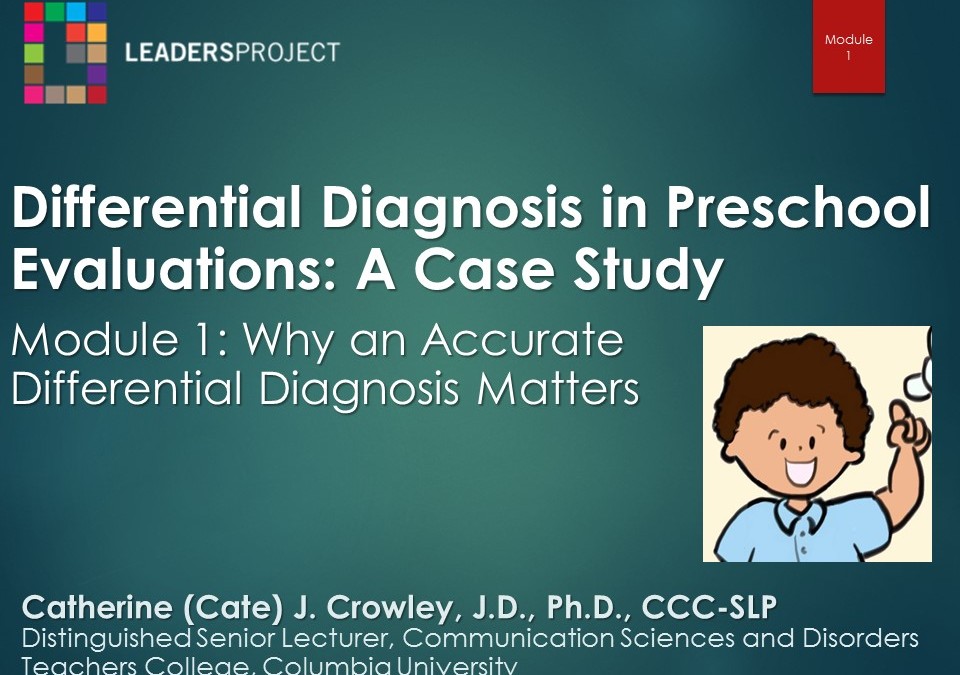
by Leaders Project | Apr 7, 2015
In this module, Cate introduces the DDPE module series by discussing why it is so important to get an accurate diagnosis. She does so by demonstrating a real-life evaluation step by step.
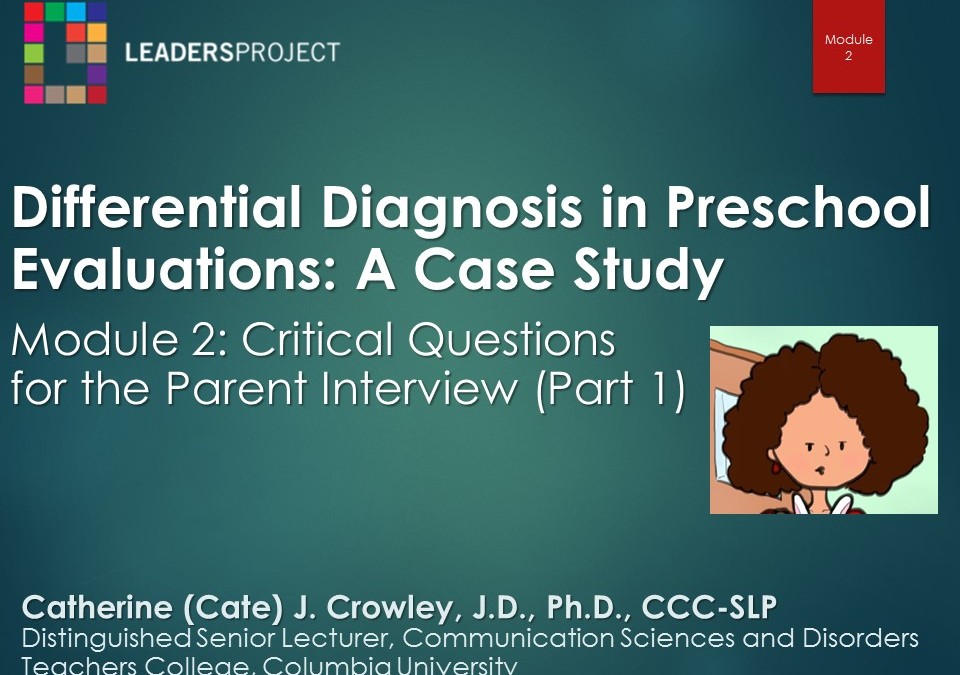
by Leaders Project | Apr 7, 2015
In this second module, Cate reviews the critical questions that should be asked of the parent during an evaluation and begins the first part of the interview with Alex’s mother.
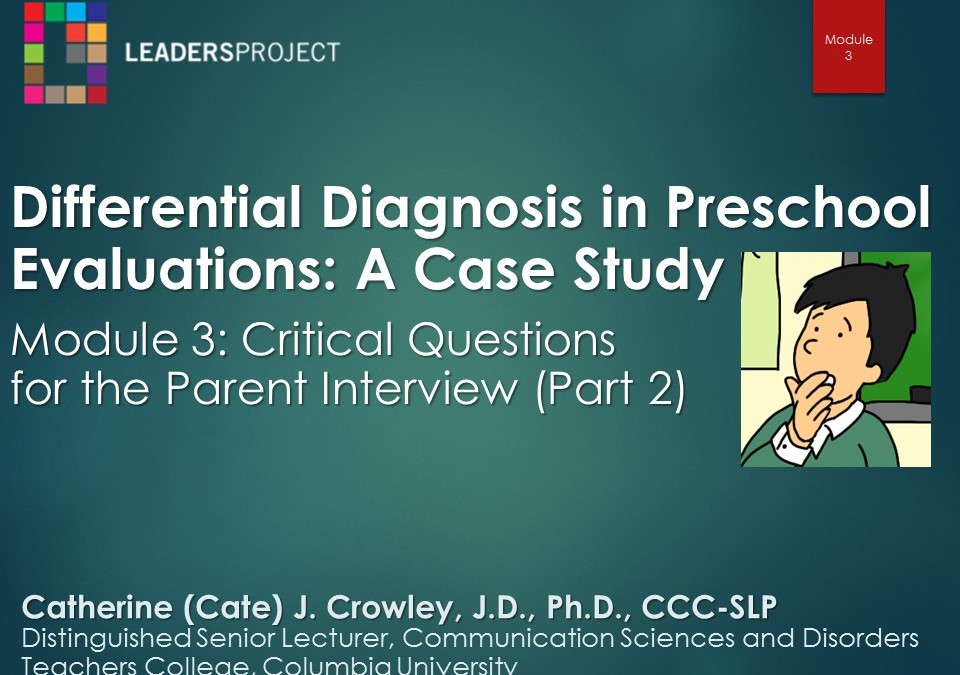
by Leaders Project | Apr 7, 2015
In this third video module, Cate continues on with the critical questions that need to be answered during the parent interview.

by Leaders Project | Apr 7, 2015
In this video module, Cate introduces the child being evaluated for this case study and begins the evaluation by using a variety of materials available on LEADERSproject.org.
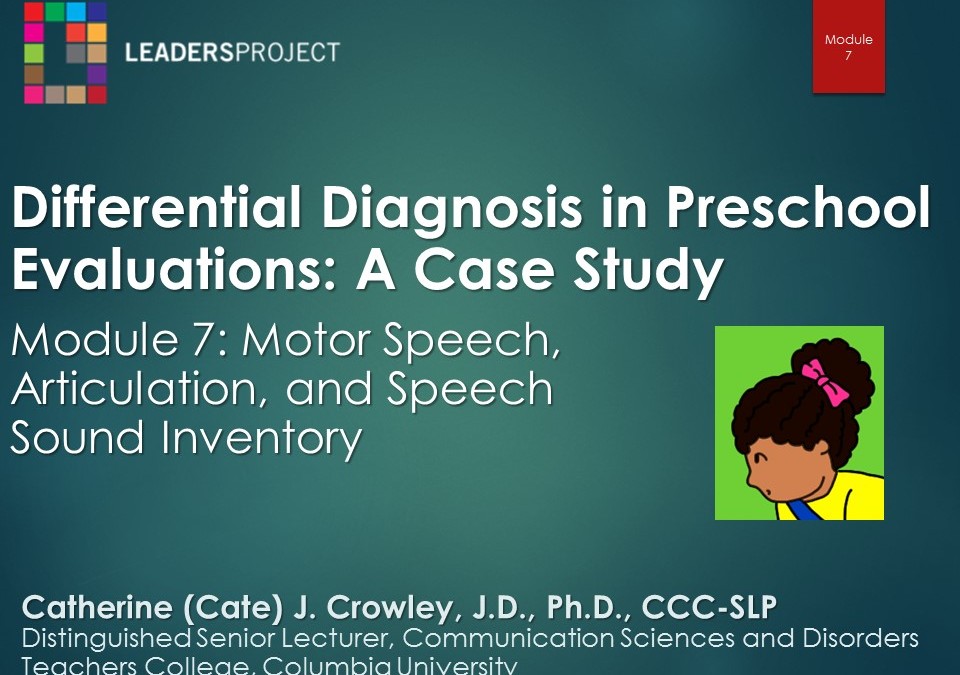
by Leaders Project | Apr 7, 2015
In this module, Cate continues with the evaluation by performing an assessment of Alex’s speech and articulation through the use of an articulation screener from the PLS-5.
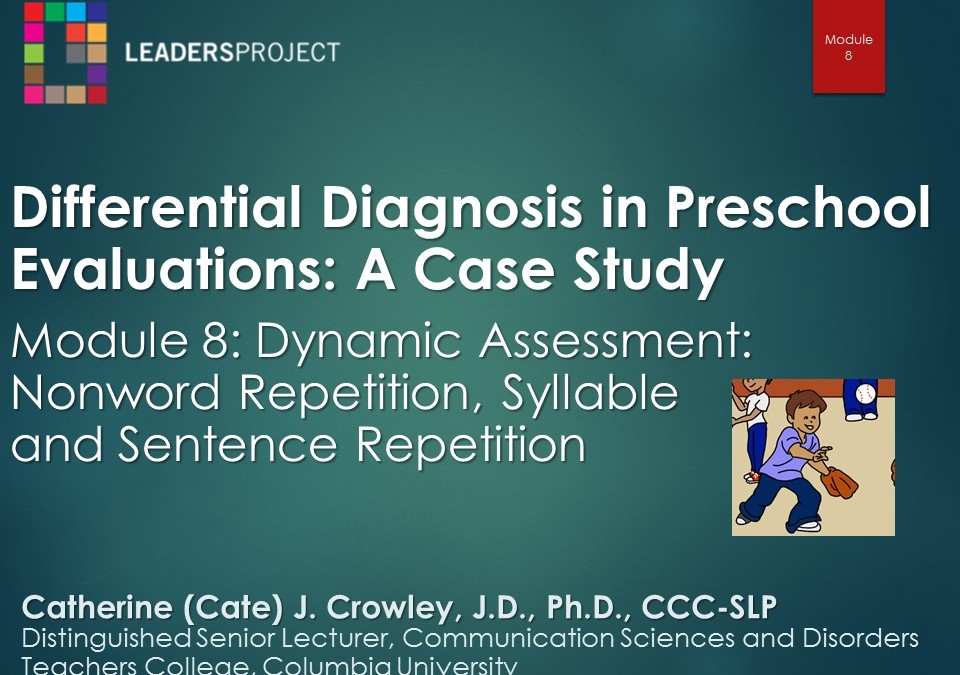
by Leaders Project | Apr 7, 2015
In this module Cate discusses using dynamic assessment using repetition of nonwords, sentences and syllables (Dollaghan & Campbell, 1998) to help confirm Alex’s diagnosis of developmental apraxia.
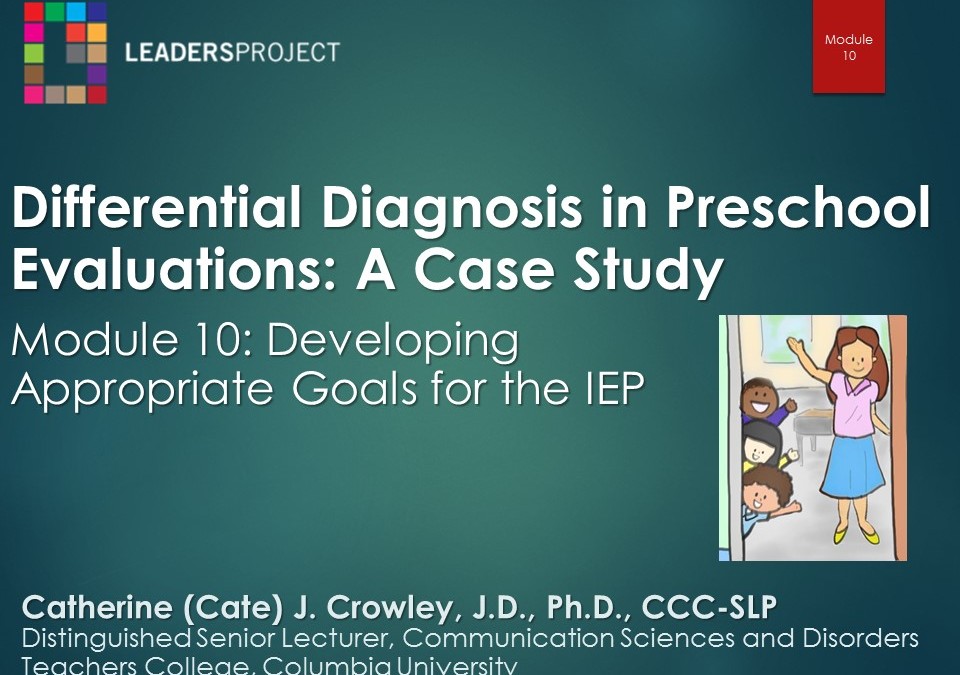
by Leaders Project | Apr 7, 2015
In this module, Cate reviews the conclusions of the evaluation and works to develop goals that will provide the support that Alex really needs.
by Leaders Project | Dec 10, 2014
This is a special education field advisory that was released in December, 2014. It details the use of standardized scores with culturally and linguistically diverse children.
by Leaders Project | May 9, 2014
In this module Stephanie Downey Toledo discusses phonics as the second component to reading development.
by Leaders Project | May 9, 2014
In this video Stephanie Downey Toledo goes into the importance of SLPs in a schoolbase setting and the key role they play in literacy and reading development.








![[feed link]](/wp-content/plugins/rss-just-better/rss-cube.gif)